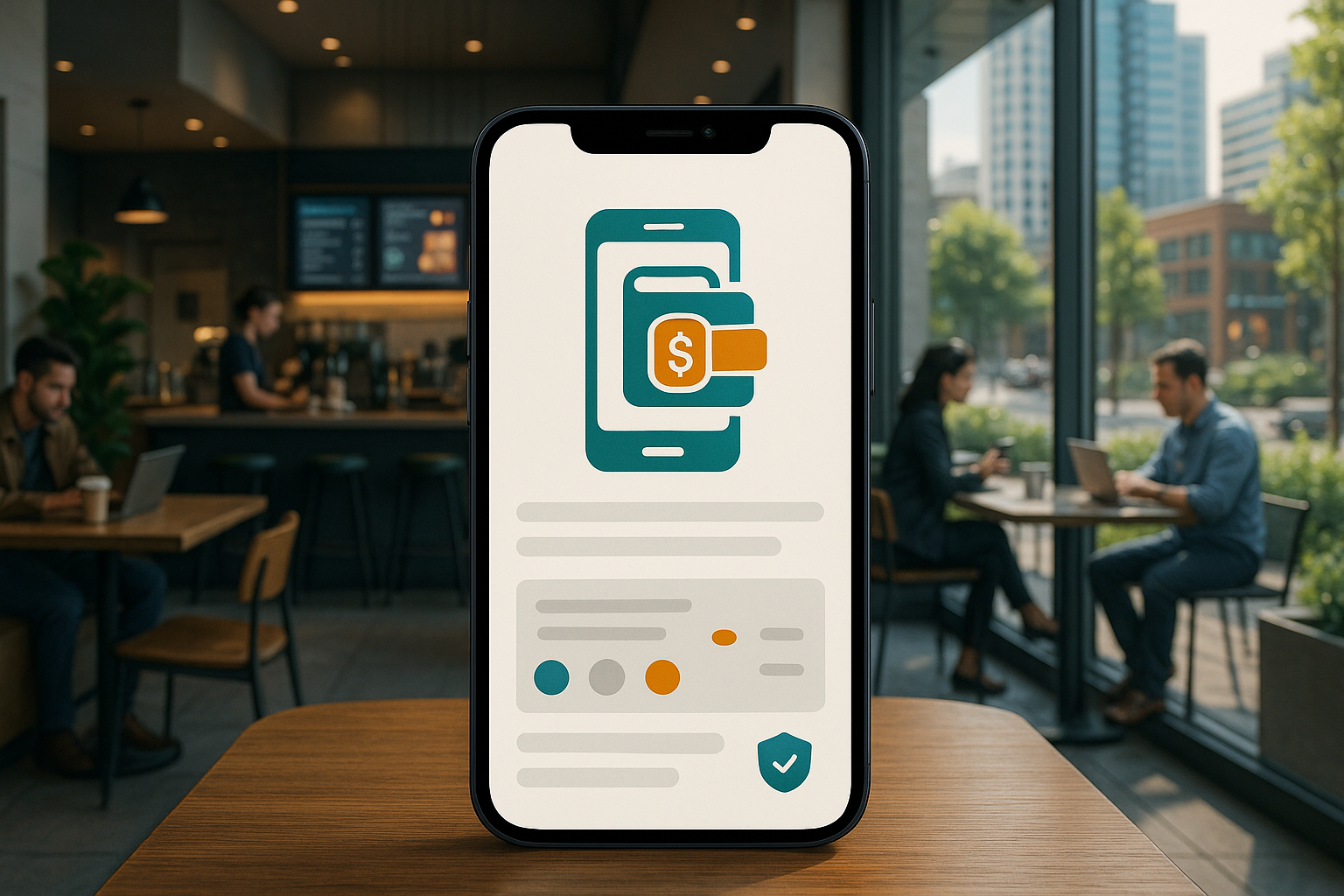Introduction
In an increasingly cashless world, digital wallets have become indispensable. From Apple Pay to PayPal, these applications have transformed how we transact, store value, and manage our financial lives. They offer unparalleled convenience, allowing us to carry everything from credit cards and event tickets to driver’s licenses on a single device. However, for businesses looking to enter this space or integrate wallet functionality into their existing apps, the path is fraught with complexity. Developing a digital wallet app is not merely a software project; it is a high-stakes endeavor involving intricate security protocols, stringent regulatory compliance, and a seamless user experience.
Attempting to build such a sophisticated application in-house can quickly overwhelm even capable development teams, leading to security vulnerabilities, budget overruns, and a product that fails to gain user trust. This article serves as a comprehensive guide to navigating the world of digital wallet app development. We will explore what a digital wallet is, dissect the challenges of building one, detail the various types of wallets, and provide a realistic cost breakdown.
Furthermore, we will introduce the top development companies that specialize in this niche. As a leading US-based, AI-powered mobile app development firm with over 20 years of experience, we at MetaCTO have guided numerous clients through complex technological landscapes. We understand the critical importance of getting security, functionality, and user experience right from day one. We will show you how partnering with an expert firm can de-risk your project and accelerate your path to a successful launch, whether you are building a standalone fintech app or integrating wallet features to enhance your existing service.
What is a Digital Wallet App?
A digital wallet, also known as an electronic wallet or e-wallet, is a software-based application that runs on a connected device, primarily a smartphone, but is also accessible from computers. At its core, it is a financial application designed to securely store a user’s payment information and passwords for numerous payment methods and websites. By consolidating this sensitive data, digital wallets eliminate the need for users to carry a physical wallet, offering a compact and convenient way to manage financial assets and personal identification.
Users can enter and store various forms of payment information, including:
- Credit card details
- Debit card information
- Bank account credentials
- Cryptocurrency, often through a crypto debit card that converts digital assets to fiat currency at the point of sale
Beyond payments, the functionality of modern digital wallets has expanded significantly. They can store a wide array of digital items, effectively replacing the entire contents of a physical wallet:
- Value Cards: Gift cards, loyalty program cards, and coupons.
- Tickets and Reservations: Event tickets, airline and transit passes, and hotel reservations.
- Identification: Driver’s licenses and other ID cards are storable in some states (like Arizona, Colorado, Georgia, and Maryland).
- Other Assets: Car keys and various membership cards.
Digital wallets leverage a mobile device’s wireless capabilities to facilitate transactions. When a user wishes to make a purchase, the app transmits the selected payment data from their device to a point-of-sale (POS) terminal. This communication happens securely via technologies like:
- Near Field Communication (NFC): A technology that allows two smart devices to connect and transfer information via electromagnetic signals when in close proximity. This is the technology behind “tap-to-pay” services like Apple Pay and Google Wallet.
- QR Codes: Matrix barcodes that store payment information. The user scans the code with their device’s camera to initiate a transaction.
- Magnetic Secure Transmission (MST): Primarily used by Samsung devices, MST generates an encrypted magnetic signal that mimics the magnetic stripe on a physical credit card, allowing it to work with older POS terminals that lack NFC capabilities.
Examples of popular digital wallets include well-known names like Apple Pay, Google Wallet, Samsung Wallet, PayPal, Venmo, and Cash App. These platforms not only allow users to make transactions but also to store funds, track payment histories, and, in some cases, provide financial services to family members, such as Apple Cash Family, which allows teens to send and receive money. Digital wallets are fundamentally changing financial accessibility, offering services to unbanked and underbanked communities that may not require a traditional bank account with a physical branch.
Reasons That it is Difficult to Develop a Digital Wallet App In-House
Building a digital wallet application may seem straightforward on the surface, but the reality is that it is one of the more challenging software projects to undertake. The combination of high security requirements, complex technology, and a demanding regulatory environment creates significant hurdles for in-house development teams that lack specialized fintech experience.
1. Uncompromising Security Requirements
The single greatest challenge is security. Digital wallets are a prime target for malicious actors because they store and transmit highly sensitive financial and personal data. A security breach can have devastating consequences, including financial loss for users and irreparable damage to a company’s reputation. Building a secure wallet requires a multi-layered approach:
- Data Encryption: All data, whether at rest on the device or in transit to a POS terminal, must be encrypted using industry-standard protocols.
- Secure Authentication: Implementing robust user authentication, including multi-factor authentication (MFA) and biometric security (fingerprint, facial recognition), is non-negotiable.
- Secure Backend Infrastructure: The servers that store user data must be hardened against attacks, with regular security audits and penetration testing.
2. Navigating the Regulatory Maze
Financial applications are subject to a complex web of local and international regulations. Navigating this landscape requires deep legal and technical expertise. Key regulations include:
- Know Your Customer (KYC) and Anti-Money Laundering (AML): Financial institutions are required to verify the identity of their customers and monitor transactions for suspicious activity to prevent financial crimes.
- Payment Card Industry Data Security Standard (PCI DSS): Any organization that stores, processes, or transmits cardholder data must comply with these stringent security standards.
- Jurisdictional Fragmentation: Regulations can vary significantly from one country or state to another. A wallet that is compliant in one region may not be in another, creating major roadblocks for companies with global ambitions.
3. Complex Technology Integration
Modern digital wallets rely on a sophisticated tech stack that can be difficult to implement correctly. Integrating features like NFC, QR code payments, and MST requires specialized knowledge of mobile hardware and software APIs. For example, integrating NFC functionality alone can cost between $5,000 and $8,000 and requires developers who understand the nuances of secure element hardware and tokenization services provided by card networks like Visa and Mastercard. Any misstep in integration can lead to failed transactions and a frustrating user experience.
4. Achieving a Seamless User Experience (UX)
For an app that handles something as critical as money, trust is paramount. A clunky, confusing, or unreliable user interface will quickly drive users away. The design must be intuitive, making it easy for users to add cards, select a payment method, and complete a transaction in seconds. This requires significant investment in UI/UX design and user testing, which can be costly and time-consuming.
How a Development Partner Like MetaCTO Can Help
Attempting to tackle these challenges without specialized expertise is a recipe for disaster. This is where a dedicated mobile app development partner like us comes in. At MetaCTO, we have over 20 years of experience building complex, secure, and scalable mobile applications. We have launched over 120 successful projects and helped our clients raise over $40 million in funding. Our team understands the fintech landscape and can navigate the technical and regulatory complexities on your behalf. We can help you validate your idea with a Rapid MVP Development in as little as 90 days, ensuring you go to market with a product that is not only functional but also secure and compliant from day one.
Different Types of Digital Wallet Apps
The digital wallet ecosystem is diverse, with at least 15 major types of wallets designed to serve different users, industries, and use cases. These can be categorized by their storage type, currency support, platform, and ecosystem restrictions. Understanding these distinctions is crucial for determining which type of wallet best aligns with your business goals. The three most basic types are Centralized (managed by a third party like PayPal), Decentralized (user-controlled, common in crypto), and Hybrid/Multicurrency wallets.
Here is a more detailed breakdown of the various wallet types:
| Wallet Type | Description | Distinctive Features | Examples |
|---|---|---|---|
| Centralized | Managed and controlled by a single institution (e.g., a bank or fintech company) that stores user data on central servers. | Secure storage, transaction history tracking, integration with banking services. | PayPal, Venmo, Apple Pay |
| Decentralized (DeFi) | Operates on a blockchain network, giving users full control over their funds and private keys without a central intermediary. | Self-custody of assets, direct peer-to-peer (P2P) transactions, enhanced privacy. | MetaMask, Trust Wallet |
| Merchant | Designed for businesses to accept digital payments, often integrating with POS systems and e-commerce platforms. | Acceptance of various payment methods, sales and transaction tracking, refund management. | Square Wallet, Shopify Payments |
| Retail Bank | Provided by traditional banks as part of their mobile banking services, enabling digital banking transactions. | Money transfers, bill payments, mobile check deposit, account management. | Chase Mobile, Bank of America Mobile |
| B2B | Facilitates commercial transactions between businesses with features tailored for corporate finance. | Bulk payment processing, invoicing, payment tracking, multi-user access. | PayPal Business, Veem |
| Single Currency | A wallet that only supports one type of currency, either fiat (like USD) or a specific cryptocurrency (like Bitcoin). | Simplified interface, focused functionality for a single currency. | Bitcoin Wallet, Cash App |
| Multicurrency | Supports multiple currencies, both fiat and crypto, allowing users to hold and transact across them from a single platform. | Easy currency switching, consolidated transaction history. | Revolut, Coinomi |
| Open | Allows users to make transactions outside the issuing platform, such as withdrawing funds to a bank account or sending to other wallets. | Fund withdrawals, transfers to other wallets, broad payment acceptance. | Paytm, PhonePe |
| Closed | Restricts transactions to within the issuing platform’s ecosystem. Funds can only be used for that specific merchant’s goods/services. | Storage of refunds and cashbacks, loyalty points management. | Amazon Pay, Starbucks Wallet |
| Mobile | Designed specifically for use on mobile devices like smartphones and tablets, optimized for on-the-go transactions. | QR code scanning, NFC for contactless payments, biometric security. | Apple Pay, Google Pay, Samsung Pay |
| Desktop | A software application that runs on desktop or laptop computers, often providing more comprehensive asset management features. | Detailed user interface, enhanced security features, backup and restore options. | Electrum, MetaMask (browser extension) |
| Cross-Platform | Works across various operating systems and devices (smartphones, tablets, desktops), synchronizing data for a consistent user experience. | Data sync across devices, uniform user experience, access from any device. | Jaxx Liberty, Trust Wallet |
| Cryptocurrency | Specifically designed for storing, managing, and transacting with cryptocurrencies by securely storing a user’s private keys. | Secure private key storage, integration with blockchain networks. | Coinbase Wallet, Exodus Wallet |
| Currency Exchange | Developed for exchanging multiple currencies (fiat and crypto) with real-time exchange rates. | Real-time rate conversion, secure trading, transaction reporting. | Wise, Kraken |
| Prepaid Card | Allows users to store and manage prepaid debit and gift cards, check balances, and use the funds for transactions. | Management of multiple prepaid cards, balance checking, easy top-up options. | Gyft, NetSpend |
Cost Estimate for Developing a Digital Wallet App
The cost of developing a digital wallet app can vary dramatically, with a typical range falling between $15,000 and $100,000+. This wide range is influenced by several key factors, including the app’s complexity, the feature set, the chosen platform (iOS, Android, web), and the development team’s location and experience.
Cost by Complexity
The single largest factor affecting cost is complexity. A simple app with basic features will be significantly cheaper than a highly advanced platform with numerous integrations.
| Complexity Level | Estimated Cost Range | Description |
|---|---|---|
| Basic / Simple | $15,000 – $50,000 | Includes essential features like user registration, wallet management, and basic transaction history. |
| Intermediate / Medium | $35,000 – $70,000 | Adds features like P2P transfers, bill splitting, QR code payments, and virtual cards. |
| Advanced / Highly Complex | $50,000 – $100,000+ | Incorporates advanced functionality like NFC payments, cryptocurrency support, loyalty program integration, AI-driven analytics, and multi-currency support. |
Cost Breakdown by Features
Each feature adds to the development timeline and cost. Here are some estimates for common digital wallet features:
| Feature | Estimated Cost Range |
|---|---|
| User Registration & Authentication | $13,000 – $20,000 |
| Wallet Management | $15,000 – $20,000 |
| Transaction History | $8,000 – $12,000 |
| Security Features (Basic) | $15,000 – $20,000 |
| Payment Integration | $15,000 – $20,000 |
| Admin Dashboard | $10,000 – $15,000 |
| Advanced Features | |
| QR Code Payments | $4,000 – $6,000 |
| NFC Payments | $5,000 – $8,000 |
| Peer-to-Peer (P2P) Transfers | $10,000 – $15,000 |
| Cryptocurrency Support | $12,000 – $18,000 |
| Virtual Cards | $10,000 – $15,000 |
| Loyalty Program Integration | $10,000 – $15,000 |
Cost by Development Team Location
The cost to hire developers varies significantly by region. Outsourcing to offshore locations can reduce costs, but it’s crucial to partner with a reputable firm to ensure quality.
| Developer Level | United States (Onshore) | Eastern Europe (Offshore) | India (Offshore) |
|---|---|---|---|
| Junior Developer | $30 – $50 / hour | $10 – $20 / hour | $7 – $11 / hour |
| Mid-Level Developer | $50 – $80 / hour | $20 – $30 / hour | $11 – $16 / hour |
| Senior Developer | $80 – $100+ / hour | $30 – $40+ / hour | $16 – $20+ / hour |
| Lead Developer / Architect | $100 – $150+ / hour | $40 – $60+ / hour | $20 – $27+ / hour |
How to Optimize Your Development Budget
- Create a Detailed Product Requirement Document (PRD): A clear PRD eliminates ambiguity, reduces errors, and prevents costly changes down the line.
- Start with a Minimum Viable Product (MVP): Building an MVP allows you to test your core concept with real users and gather feedback at an affordable price before investing in a full-featured application.
- Prioritize Features: Focus on the essential features for your initial launch and add more complex functionality in later iterations.
- Choose Cross-Platform Development: Building a single app that runs on both iOS and Android using a framework like React Native or Flutter can save a significant amount of money compared to developing two separate native apps.
- Hire the Right Partner: While outsourcing can be cheaper, partnering with an experienced firm like MetaCTO ensures you get a high-quality, secure product without hidden costs or future rework. Our expertise in AI development can also help you build a future-ready platform with advanced capabilities.
Top Digital Wallet App Development Companies
Choosing the right development partner is the most critical decision you will make. You need a team with proven expertise in fintech, a deep understanding of security, and a track record of delivering successful products. Here are some of the top companies in the digital wallet development space.
1. MetaCTO
As a top US-based, AI-powered mobile app development agency, we at MetaCTO stand at the forefront of technological innovation. With over 20 years of app development experience, we have successfully launched over 120 projects, helping our clients attract customers, secure over $40 million in funding, and achieve successful exits.
Our approach is comprehensive, guiding you through every stage of the product lifecycle:
- Validate: We help you turn your idea into a market-ready MVP in just 90 days, allowing you to test your concept, gather real-world feedback, and validate your business model on a tight budget and timeline.
- Build: We handle the entire development process—from UI/UX design to backend engineering and launch—to deliver a polished, secure, and scalable app.
- Grow & Monetize: We don’t just build apps; we help you grow them. Using A/B testing and analytics, we optimize user onboarding, engagement, and retention. We also help you implement effective monetization strategies, whether through subscriptions, in-app purchases, or ads.
- Evolve: As your business scales, we ensure your app evolves with it, integrating the latest technologies like AI to keep you competitive. Our work on complex projects like the G-Sight training app, which uses computer vision AI, demonstrates our ability to handle cutting-edge technology.
2. Limeup
Founded in 2017 and headquartered in London, Limeup creates user-friendly platforms with clear navigation and seamless architecture. They apply the highest security standards for the fintech industry and are known for finding customized solutions that provide fast and easy access to digital monetary assets. Their work includes creating state-of-the-art software for trading finance and a comprehensive platform for buying, selling, and storing cryptocurrency.
3. Impltech
Based in Berlin, Germany, and founded in 2017, Impltech are experts in scalable and secure mobile development tailored to market needs. They leverage advanced AI technologies to make applications competitive and relevant. The company provides clients with fully functional and protected applications that simplify asset transactions, including cryptocurrencies and asset management, and are known for creating visually striking interfaces.
4. Itexus
Founded in 2013 and headquartered in Dover, DE, USA, Itexus uses advanced technologies and integrations to stay one step ahead in the evolution of digital payments. They specialize in creating customized, secure, and easy-to-use wallets with excellent design. Their services include developing various wallet types, from cryptocurrency panels to mobile banking apps and P2P payment services.
5. Appinventiv
With its headquarters in Delhi, India, Appinventiv was founded in 2015. The company is known for building resilient, scalable, and high-performance applications that optimize financial operations. Their team of proficient strategists, developers, and designers creates wallet solutions that allow financial institutions to process transactions faster and enable users to monitor their assets in real-time.
6. Consagous Technologies
Founded in 2008 in Indore, India, Consagous Technologies is committed to innovation and implementing advanced trends. Each product they generate is individual and designed to revolutionize financial transactions with the highest level of security and an unrivaled user experience. They pay close attention to tech compatibility and ensure products meet industry standards across various jurisdictions.
7. Mobiloitte
Established in 2009 with headquarters in Cambridge, MA, USA, Mobiloitte has over a decade of experience and has become a trusted partner for fintech enterprises. Their roadmap focuses on affordable solutions without compromising on quality standards. They are known for contributing streamlined dashboards and effective visualizations, working with clients globally to meet unique user needs.
8. RipenApps
Headquartered in Ontario, CA, USA, RipenApps was founded in 2013 and has transformed hundreds of financial and banking ideas into successful mobile products. Their dedicated experts can build sustainable outputs from scratch or integrate robust features into an existing app, with a strong emphasis on advanced immunity features and fraud prevention mechanisms.
9. Codiant Software Technologies
Founded in 2010 and based in East Moline, IL, USA, Codiant Software Technologies offers a variety of mobile banking, financial management, and mobile wallet solutions. Their unique and customized formats provide easy access to payment gateways and improve user interaction, all while adhering to strict safekeeping protocols.
10. Innowise
With headquarters in Vilnius, Lithuania, Innowise was founded in 2007. The company has significant experience in the fintech sector, using machine learning, big data, cloud, and AI services to increase operational efficiency, flexibility, and security. They help clients optimize operations, implement new service models, and ensure robust protection.
11. SDK.finance
Also based in Vilnius, Lithuania, and founded in 2013, SDK.finance is fully focused on fintech with the core motto of making finance accessible to everyone. Co-founded by digital payments veteran Pavlo Sidelov, the company provides a core transaction processing system and develops digital wallets and mobile banking apps, with a strong emphasis on compliance with KYC, AML, and other critical regulations.
Conclusion
The journey to developing a successful digital wallet app is both exciting and challenging. As we’ve seen, a modern e-wallet is far more than a simple payment app; it’s a complex ecosystem that demands expertise in security, regulatory compliance, and sophisticated technology. We have explored the fundamental components of a digital wallet, the significant hurdles of in-house development, the diverse array of wallet types available, and the financial investment required to bring one to market.
Choosing the right development partner is not just a strategic advantage—it is a necessity. A firm with a proven track record in fintech can help you avoid common pitfalls, navigate the regulatory landscape, and build a product that users trust.
Don’t navigate the complexities of digital wallet development alone. Whether you are building a new app from scratch or looking to add powerful wallet functionality to your existing product, our team of experts is here to guide you. We combine 20 years of technical expertise with a strategic, business-focused approach to ensure your project succeeds.
Talk with a MetaCTO expert today to discuss how we can integrate secure and seamless wallet features into your product and help you achieve your business goals.






